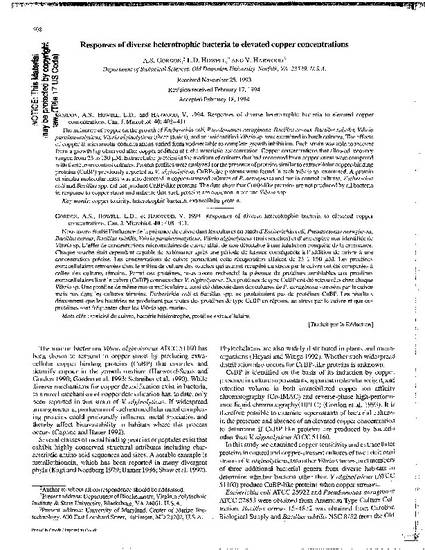
The influence of copper on the growth of Escherichia coli, Pseudomonas aeruginosa, Bacillus cereus, Bacillus subtilis. Vibrio parahaemolyticus. Vibrio alginolyticus (three strains), and an unidentified Vibrio sp. was examined in batch cultures. The effects of copper at micromolar concentrations varied from undetectable to complete growth inhibition. Each strain was able to recover from a growth lag observed after copper addition at a characteristic concentration. Copper concentrations that allowed recovery ranged from 25 to 150 f.LM. Extracellular proteins in the medium of cultures that had recovered from copper stress were compared with those from control cultures. Protein profiles were analyzed for the presence of proteins similar to extracellular copper-binding proteins (CuBP) previously reported in V. alginolyticus. CuBP-like proteins were found in each Vibrio sp. examined. A protein of similar molecular mass was also detected in copper-stressed cultures of P. aeruginosa and not in control cultures. Escherichia coli and Bacillus spp. did not produce CuBP-like proteins. The data show that CuBP-like proteins are not produced by all bacteria in response to copper stress and indicate that such proteins are common in marine Vibrio spp.
Available at: http://works.bepress.com/daniel_howell/3/
